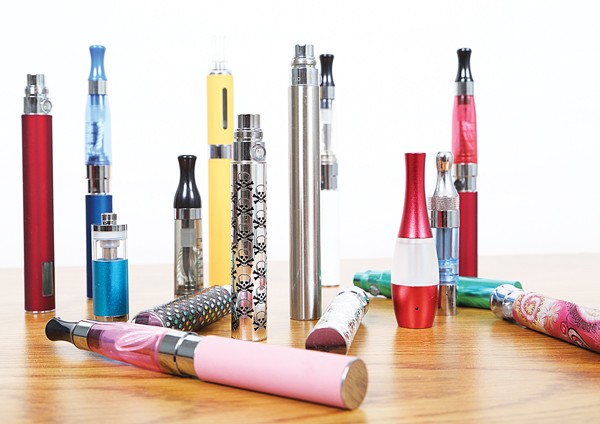The Wild, Wild West days for unregulated electronic cigarettes may be coming to an end.
The belt is tightening for the industry and its users. More than 30 states have stepped in to regulate e-cigarettes or vaporizers and define what they are (“alternative nicotine” among other names), but the U.S. Food and Drug Administration (FDA), is trying to regain control for nationwide regulation.
Some states, such as Missouri, have already enacted laws that will prevent e-cigarettes from being taxed or regulated like traditional cigarettes. A Tennessee bill that tried to do the same went nowhere in the General Assembly.
Currently, only a few states have passed restrictive regulations that treat e-cigarettes like traditional cigarettes. Tennessee has not yet, and the vaping community — that is, users of e-cigarettes — is taking a grassroots approach to informing the state’s senators and representatives about the benefits of vaping over smoking in the wake of FDA regulations.
Some regulation, such as a ban to sell to anyone under 18, is welcomed by users. Other rules are less clear-cut and still remain debatable for users, like regulation of what exactly can go into e-cigarettes to be inhaled through the vapor.
 Cherie Moncada | Dreamstime.com
Cherie Moncada | Dreamstime.com
Tiffany Everett is one of the administrators on the Memphis Vapers Group on Facebook, a community of more than 2,200 Mid-Southerners who use electronic cigarettes.
“If the regulations go how they stand, it’s going to kill our small businesses,” Everett said. “If you want to look at Tennessee alone, we’ve got over 200 brick and mortar shops. Take that number and average about five employees a piece — that number is pretty big. That’s going to be a big hit to our economy, even here in Tennessee.”
The Facebook group members have been vocal about standing up for vaping, particularly down to the dollars and cents.
“One of the big [regulations] that is going to hurt us is that they’re going to have to submit an application for new vapor products like juices, equipment, anything like that,” Everett said. “Going through that application process could cost a million dollars. We couldn’t afford that. ‘Big Tobacco’ could afford that.”
Another of the mass campaigns employed by the group involves telling their personal stories about how e-cigs helped them quit smoking cigarettes or how their health has improved by vaping instead of smoking. However, electronic cigarettes are not marketed as smoking cessation devices and, if they were, they would be subject to stricter FDA regulations and imported products would be limited.
“None of these products are marketed as smoking cessation devices. They’re not marketed as medicines,” said Jonathan Foulds, a professor of Public Health Sciences and Psychiatry at Pennsylvania State University who has focused on smoking cessation and tobacco use since the 1980s.
“If they did, they would have to jump through different hoops in a different part of the [FDA], the same as the nicotine gum and patches. They would have to prove their safety and efficacy. Right now, that’s not how they’re being sold. They’re being sold like other tobacco products.”
Foulds has shifted his study to electronic cigarettes.
“We know the ones that are out on the market right now are not great, but there’s been a lot of innovation over the last five years,” Foulds said. “If they’re over-regulated right now, that could bring an end to that possible development, or at least slow it down significantly and leave the lethal tobacco cigarette, which is much more unhealthy than any electronic cigarette, as still the number-one source of nicotine in this country.”